A new app is connecting those in the chronic illness community.

Healp is designed to bridge the gap between medical professionals, partners and those living with a chronic illness.
“I felt so behind on life and I was very severely depressed because I had no one around me that could relate,” says app founder and CEO Elizabeth Tikoyan.
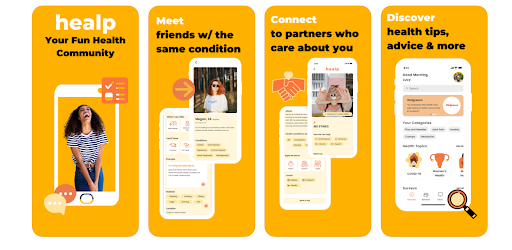
“I spent many, many years severely depressed — fighting a battle by myself and fighting a battle that none of my friends could relate to. It was very embarrassing going through that, you’re physically not the same person. You have physical limitations. Everyone’s making fun of you or judging you or putting you down.”
Tikoyan says she struggles with several chronic illnesses: endometriosis, lyme disease and irritable bowel syndrome (IBS). She says her struggles are what led her to create the app.
Tikoyan says she has worked on creating apps designed to help those with chronic illnesses since 2019.
She originally launched an app called Riley in January 2020. It was designed with the same purpose as Healp but was taken off the market so Tikoyan could recreate the app. That was when Healp was born.
The Healp app officially launched on the Apple app store in July 2022 and has had thousands of downloads.
Living with chronic illness
“When I was in high school, I was misdiagnosed for years, and when I was in my graduation month, my senior year, I was given a diagnosis that had no cure,” Tikoyan says.
“It was devastating and I had no one to turn to for any help. And being told by your doctors, ‘You’re never going to get better,’ or, ‘There’s nothing they can do to help you,’ it was devastating — (and) seeing all your friends head off to college and start their new journeys.
“It was extremely lonely being sick.”
Breanne Kuffner also says it’s lonely coping with chronic illness. She says the chronic illnesses she developed prior to the COVID-19 pandemic greatly affected her mental health.
“I went through a very big isolation period where I was just so depressed and devastated because I didn’t know what was happening,” the Edmonton woman says.
“I had doctors telling me that it was all in my head and I didn’t have a community to help me.”
Kuffner lives with Ehlers-Danlos syndrome (EDS) and postural orthostatic tachycardia syndrome (POTS).
According to Alberta Health Services, 30 per cent of Albertans have a chronic illness and that number increases to more than 75 per cent once a person hits age 65.
“There’s so many more people that are struggling than you realize,” Tikoyan says. “The reason why we don’t know that is because not many people are very public about struggling with a health condition.”
Rebecca Purc-Stephenson is a professor of psychology at the University of Alberta who specializes in chronic illness and mental health.
She says that in her studies she found that people who disclose their disability to their employers are more likely to stay in the workforce and stay for longer.
“I think finding and learning about workplace policies and talking to trusted sources to let them know that you need help, I think is really important,” says Purc-Stephenson.
Due to symptoms, many disabled people struggle leave the house to take part in the activities they want or need to.
Kuffner says she often must isolate herself from friends and different events because of her illnesses — which doesn’t help her mental health.

Get weekly health news
“I cancel my plans with my friends because I know I will not have a good time and I will make it harder for everyone.”
The Mental Health Commission of Canada estimates 25 to 50 per cent of people living with a chronic condition will experience depression.
Why people need community
“Sometimes knowing that you’re not the only ones facing these issues is really powerful,” Purc-Stephenson says.
“(It can be helpful) if they’re new and they want to find their people or their community or they’re someone who’s lived with it for a long time and there’s someone who wants to offer support to other people.
“There’s a lot that they can offer to each other that you don’t find in other communities.”

Purc-Stephenson says apps such as Healp can create substantial benefits for a person living with chronic illness.
She adds many people feel isolated and have mental health struggles due to the changes they experience with chronic illness.
“A lot of our own identity comes from interacting with people, engaging with our society, having a job, participating in the labour force. So then when you’re not able to do that, which might make you isolated, (it) can contribute to a sense of social isolation, geographical isolation and all of that.
“It makes one question, like, ‘What is my purpose?’ And greater questions then of, ‘What does it matter?’ or, ‘What am I contributing?’ or, ‘Who am I?’”
Purc-Stephenson adds that many people base their self-worth and well-being on their ability to contribute to society as an able-bodied individual.
“Key components to a healthy well-being is having a purpose and feeling that you have your place in society,” she says.
Purc-Stephenson says one of her studies concluded those who were able to make sense of their illness had improved mental health.
“We often don’t know why we develop a chronic illness,” she notes. “So that question of, ‘Why me?’
“Our research (showed) that when you are able to answer that question, ‘Why me?’ with anything, you’re actually better off psychologically and mentally. You adapt better, you accept your illness, you’re better socially.
Using social media to connect with others living with illness
One of the most popular ways to find others in the chronic illness community is through social media. Some common social media platforms to find others are TikTok, Facebook, Instagram, Twitter or Reddit.
Kuffner says she joined many different Facebook groups but found them unhelpful.
“I just find Facebook to be a really toxic, awful place,” she says. “I don’t go on Facebook at all anymore. I’m still a part of (the groups), but there is just so many rules: ‘You can’t talk about this, you can’t talk about that.’
“It just felt like there was so much stuff that you couldn’t talk about that was so important for chronic illness that it just made it kind of null and void.”

Purc-Stephenson says while public community groups on platforms like Facebook can be great, they also come with a variety of issues. Some include a lack of post moderation and an absence of experts.
“One of the issues with those support groups on those types of public platforms is that even if they’re monitored, there can be a lot of issues,” she says. “Sometimes the posts are moderated quickly.
“You might pose a question and get responses from non-experts. And certainly there’s that informational support, but it’s never really vetted by experts or there’s no one really monitoring.”
Kuffner says TikTok has been a much more positive space for meeting others like her.
“TikTok has been my new resource for finding people. I started posting on there just with how insane AISH (Alberta’s Assured Income for the Severely Handicapped) is and elections coming up. I really just wanted to start voicing my opinions.”
On these apps or websites there are many people who post information about their illnesses, to raise awareness, to give other people tips or helpful information about their illness or symptoms, to show the reality of living with a chronic illness, to find a community of support and a community of people who understand the struggles a person with chronic illness faces.
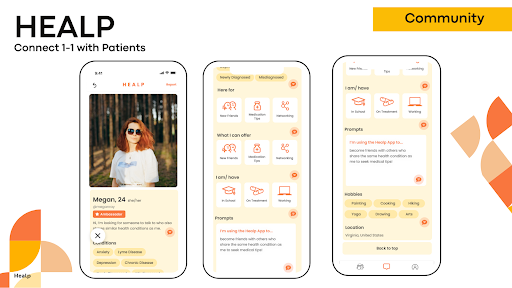
“The people that I have met have been really great and really helpful,” Kuffner says. “Just having someone you know is going through a similar experience, (it) just makes it feel lighter on myself — personally knowing that I wasn’t just dealt the sh***iest hand and everybody thinks I’m crazy.
“I think having these opportunities like these supports — like the Healp app — can be extremely beneficial for someone who’s feeling isolated (or) looking (to ask) some questions.”
‘A natural progression’
“(With the rise of chronic illnesses like) long-COVID, I think there’s going to be more mental health issues,” Purc-Stephenson says. “These types of apps might just be a natural progression of the types of supports.
“And I think having the variety of supports, not necessarily that all other supports are going to vanish. But if someone is homebound or in the rural community, having these types of options available is extremely important.”
Kuffner says to make the isolation of chronic illness understandable to people without a chronic illness, she draws an analogy to the COVID-19 isolation period.
“(The way) I can describe the isolation aspect to people who aren’t chronically ill is, remember in COVID, when you couldn’t do anything you wanted to do? Imagine that but everybody else still gets to (do what they want).”
Purc-Stephenson adds that people are more willing to accept mental health challenges and discuss them since the pandemic.
“People are more able to speak freely about mental health challenges,” she says. “Almost everyone knew someone (who experienced them) or experienced mental health challenges (themselves).”
Healp was created to give people access to a community of others like them.
Tikoyan describes her journey of finding a community as challenging and confusing. She explains that many of the people she met couldn’t relate to others.
“I really was trying to find community,” she says. “I was trying to find anyone to help. I knew there had to be something out there and I couldn’t find it. I kept trying to meet people. I was joining support groups (but) everyone was two to three times my age. I had nothing in common with them.
“So I was inspired to start Healp to connect a community of people that were going through the same health battles. And so that way we can help each other out with a lot of questions we might have on our journey, or (to) just feel less alone.”
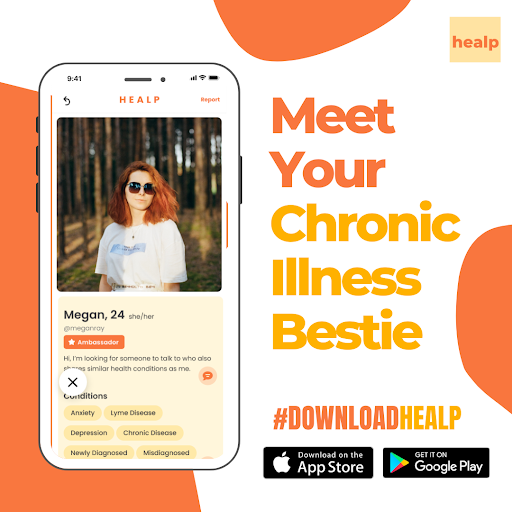
Purc-Stephenson explains that the people in these groups can help give people hope and encourage them to aspire to reach their dreams.
“Sometimes they can be stories of inspiration,” she says. “Especially if they’re in (a different) stage in their chronic illness.”
Not only can the app inspire but it can also encourage people to find others who work and compare experiences.
“Having a place where they can connect socially with people who are similar to them — maybe in a work context — is so important for them to feel valued, validated and supported,” says Purc-Stephenson.
“I think it would make people feel less alone.”
Tikoyan encourages everyone on the app to not fear reaching out first, because a person can never know what will happen or who they could connect with.
“Everyone is on our platform for the same reason you are. And I wouldn’t be afraid to say hello to someone. You never know if it’ll turn out to be one of your best friends or if you’ll learn something from that individual.”



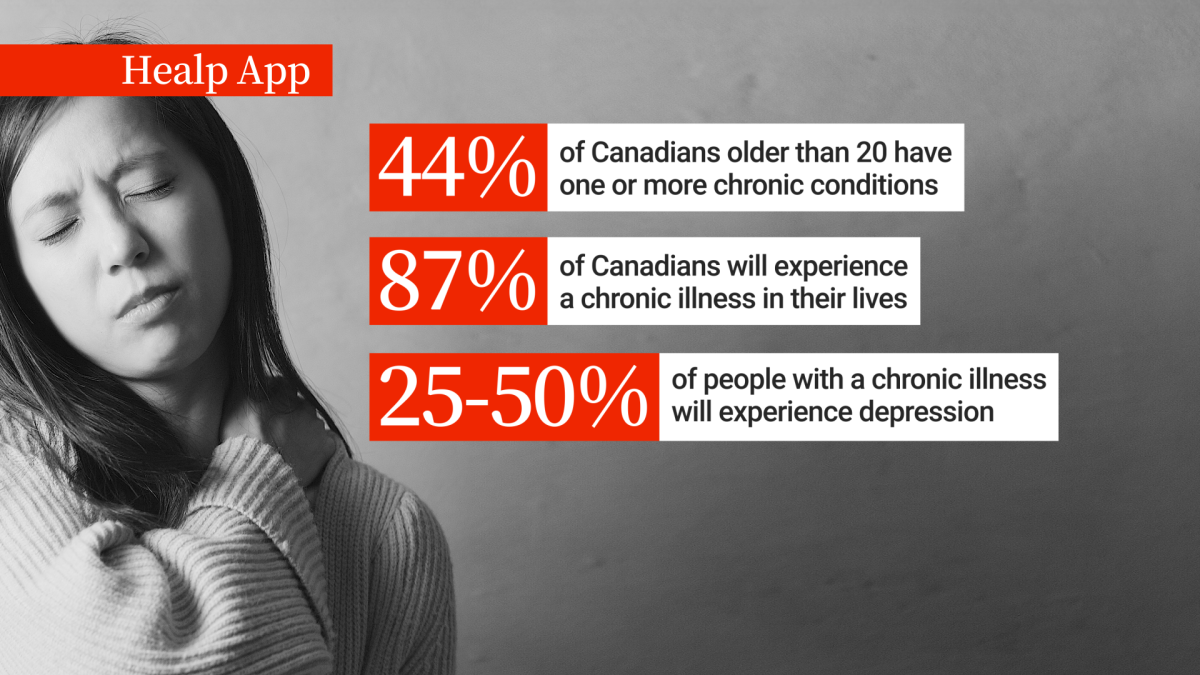
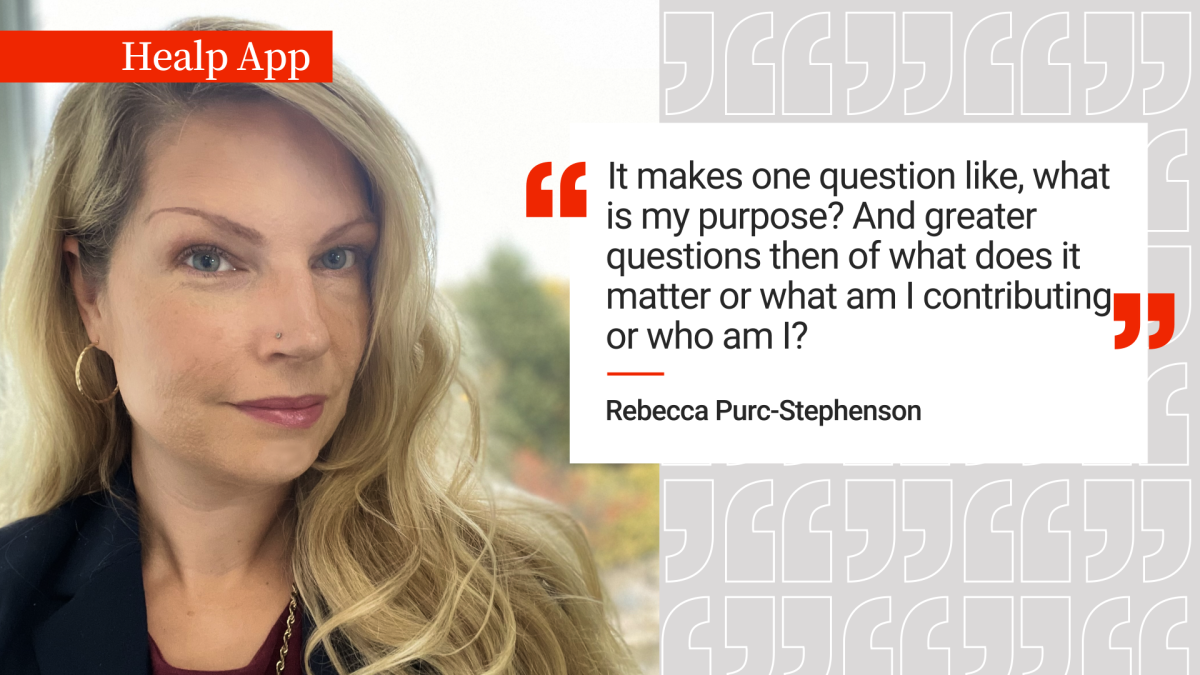












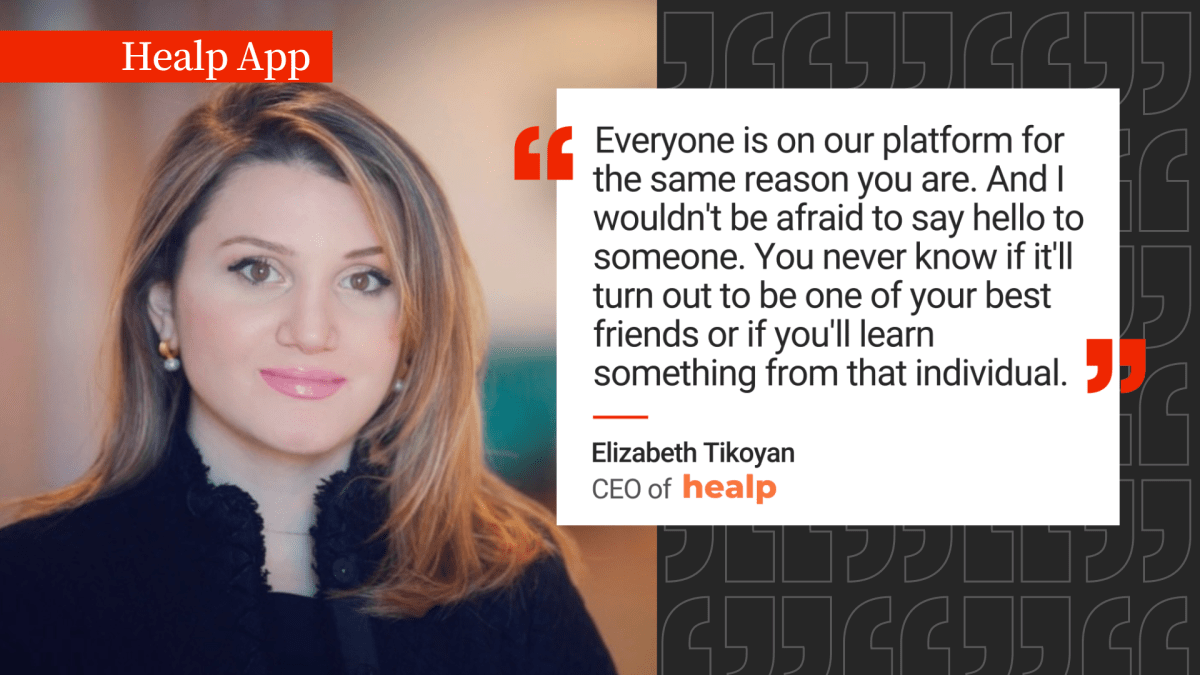
Comments
Want to discuss? Please read our Commenting Policy first.